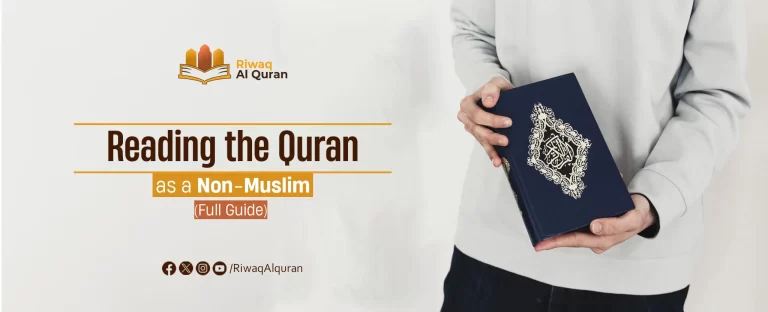Can Women Visit Graveyards in Islam? This blog post examines Sharia rulings regarding women’s visits to graveyards in Islam. It explores whether wives can visit their husband’s graves and if daughters have permission to visit their father’s graves.
Graveyards evoke reverence and contemplation, but women’s visits may be confused due to differing opinions. Thus, this post aims to unravel these questions and provide guidelines for female visitors at graveyards in Islam.
Table of Contents
Can Women Go To Graveyards in Islam?
Yes, women can visit graveyards in Islam, but there is a difference of opinion among scholars. The consensus is that it is disliked for women to visit graves due to concerns about getting overly emotional and the potential for loud crying or wailing.
However, it is not prohibited outright. Women who choose to visit graves should adhere to certain guidelines such as dressing modestly, avoiding mingling with non-Mahram men, being accompanied by a Mahram in deserted graveyards, maintaining calmness, and seeking reminders of the Hereafter.
It is important to note that during the Iddah period, women were generally prohibited from visiting graves unless they had their husband’s permission. It is also important to note that visiting the grave of the Prophet Muhammad holds great significance and is considered a highly commendable act.
Al-Qurtubi said:
“The curse mentioned in the hadith is only for those who frequently visit the graves, as the wording implies exaggeration.”
Al-Khatib al-Shirbini, may Allah have mercy on him, says:
“It is disliked for women to visit graves because it is likely that they will cry and raise their voices due to their emotional sensitivity, frequent distress, and lower tolerance for calamities. It is not forbidden because the Prophet (peace be upon him) once passed by a woman crying over her child’s grave and said to her, ‘Fear Allah and be patient.'” (Agreed upon).
Can women attend burials in Islam?
Yes, women can attend burials in Islam; but while it’s generally permitted, women should observe modesty, avoid excessive emotional displays like wailing, and maintain a respectful demeanor. Some scholars discourage women from attending burials if there is a risk of inappropriate behavior, but it is not strictly prohibited.
The Sharia Ruling on Women Visiting Graveyards
The Sharia ruling on women visiting graveyards is supported by various hadiths and indicates that it is not prohibited. The following hadiths provide evidence for this view:
1. Prophet Muhammad’s Encounter with a Weeping Woman
The Prophet Muhammad (peace be upon him) encountered a woman who was weeping at a grave. Instead of prohibiting her from visiting, he advised her to fear Allah and have patience. This interaction suggests that women are allowed to visit graves.
2. Aisha’s Inquiry about Visiting Graves
Aisha (may Allah be pleased with her), the wife of the Prophet, asked him about what to say when visiting graves. In response, the Prophet instructed her to recite a supplication for peace and mercy upon the inhabitants of the graves. This guidance implies that women are permitted to visit graves and offer prayers for the deceased.
3. The Purpose of Women Visiting Graveyards
The purpose of women visiting graveyards in Islam is to show respect for the deceased, engage in supplications and remembrance, and seek blessings and forgiveness for themselves and their loved ones who have passed away. It is a way for women to honor and remember the deceased and seek spiritual benefit from the visit.
Enroll your child in our Online Islamic Studies Course for Kids at Riwaq al-Quran, where they will learn about the Prophet’s teachings and increase their knowledge of Islam.
The Shafi’i View on Women Visiting Graveyards
According to the Shafi’i school, it is generally disliked (makruh) for women to visit graves. This view is based on a hadith stating that the curse of Allah is upon women who visit graves. However, there is some disagreement among scholars within the Shafi’i school.
Imam An-Nawawi suggests that if women visit graves without engaging in actions such as wailing and grieving excessively, it is only disliked (makruh) unless they are old women who do not pose a concern. The scholars agree that women should not intermingle with men when visiting graves.
In conclusion, the strongest opinion is that it is generally makruh for women to visit graves, but there are conditions under which it may be permitted if certain behaviors are avoided.
Experience Riwaq Al Quran Classes
Watch real moments from our live sessions at Riwaq Al Quran and see how we bring learning to life. These clips highlight our interactive, student-focused approach designed to keep learners engaged, motivated, and actively involved in every step of their educational journey.
Hanafi View on Women Visiting Graveyards
In the Hanafi School, it is generally permissible for old women to visit graves as long as no actions contrary to Shariah are practiced. However, if there is a fear of loud crying, wailing, or intermingling with men, then it would be impermissible.
As for young women, if the conditions of no excessive grieving and no fear of fitna are met, it is permissible but disliked.
The soundest opinion in the Hanafi School is that women can visit graves for contemplation, compassion, and seeking blessings, especially if they are elderly. However, if there is a risk of wailing, loud crying, or fitna, it is not permitted.
Can a Wife Visit Her Husband’s Grave in Islam?
Yes, a wife can visit her husband’s grave in Islam. While some scholars may consider it disliked, particularly during the ‘iddah period, others, especially those following the Shafi’i school of thought, allow women to visit graves, including that of their husbands.
It is important to note that opinions on this matter may differ among various scholars and interpretations. It is encouraged to visit graves to remember death and pray for the deceased.
However, women need to observe modesty and appropriate behavior when visiting graves, as Islam emphasizes dignity and respect in all circumstances.
Can a Daughter Visit Her Father’s Grave in Islam?
Yes, a daughter can visit her father’s grave in Islam. While there is a difference of opinion among scholars, many consider it permissible for women to visit graves, including the graves of their fathers.
This is seen as a way of remembering death and the afterlife. However, it is important to approach such visits with proper etiquette and modesty, maintaining respect for the deceased and the sanctity of the grave.
Guidelines for Women Visiting Graves in Islam
Visiting graves is an important practice in Islam, but it is crucial to understand the guidelines and etiquette associated with this act. Here are some key points for women visiting graves in Islam:
1. Seek Permission:
It is recommended that women seek permission from their husbands or guardians before visiting a graveyard.
2. Dress Modestly:
When visiting graves, women should adhere to the Islamic principles of modesty by wearing loose-fitting clothing that covers their bodies appropriately.
3. Maintain Dignity:
Women should behave respectfully when visiting graves, refraining from any excessive mourning or displaying emotions that may disturb others.
4. Avoid Decoration:
While it is permissible to place flowers or simple markers on graves, extravagant decorations are discouraged as they can lead to practices resembling shirk (associating partners with Allah).
5. Recite Duas and Offer Prayers:
Women can recite duas (supplications) seeking forgiveness and mercy for the deceased while standing beside the grave.
By following these guidelines, women can approach visits to graveyards with reverence and respect while upholding Islamic values and principles.
Why Students Love Learning with Riwaq Al Quran
Hear directly from our students about how Riwaq Al Quran Academy has transformed their connection with the Book of Allah. Their experiences reflect the dedication, care, and quality that guide every step of our teaching.
Select Riwaq Al Quran’s Online Fiqh Course for Exceptional Learning!
Riwaq Al Quran’s Online Fiqh Course is an exceptional choice for enhancing your understanding. Their comprehensive curriculum, expert instructors, and interactive learning techniques ensure an exceptional learning experience.
With a focus on practical application and in-depth analysis of fiqh principles, this course offers invaluable insights into Islamic jurisprudence. Whether you’re a beginner or seeking to deepen your knowledge, Riwaq Al Quran’s Online Fiqh Course provides a platform for exceptional learning.
Here are a sample of our set of Quran Courses that will be helpful for you:
- Online Tafseer Course: Delve into Quranic meanings with our insightful online Tafseer course.
- Noorani Qaida Online: Learn Quranic basics efficiently through our Noorani Qaida online program.
- Online Quran Recitation Course: Enhance Quranic recitation skills through our expert-led online course.
- Online Tajweed Classes: Master Tajweed rules for beautiful Quranic recitation in online classes.
- Quran Memorization Online Course: Memorize the Quran effectively with our specialized online memorization course.
- Online Qirat Course: Explore diverse Qirat styles with our comprehensive online Qirat course.
- Online Quran Classes for Kids: Nurture a love for the Quran in kids through interactive online classes.


Conclusion
It is permissible for women to visit graveyards in Islam. However, certain guidelines should be followed to ensure proper conduct and respect.
Seeking permission before entering, dressing modestly, maintaining dignity, avoiding decoration, and reciting duas, and offering prayers are important practices for women visiting graves.
It is also important to remember the purpose of such visits – seeking solace and reflecting on our mortality. By adhering to these guidelines, women can engage in this act of remembrance with reverence and sincerity.


































